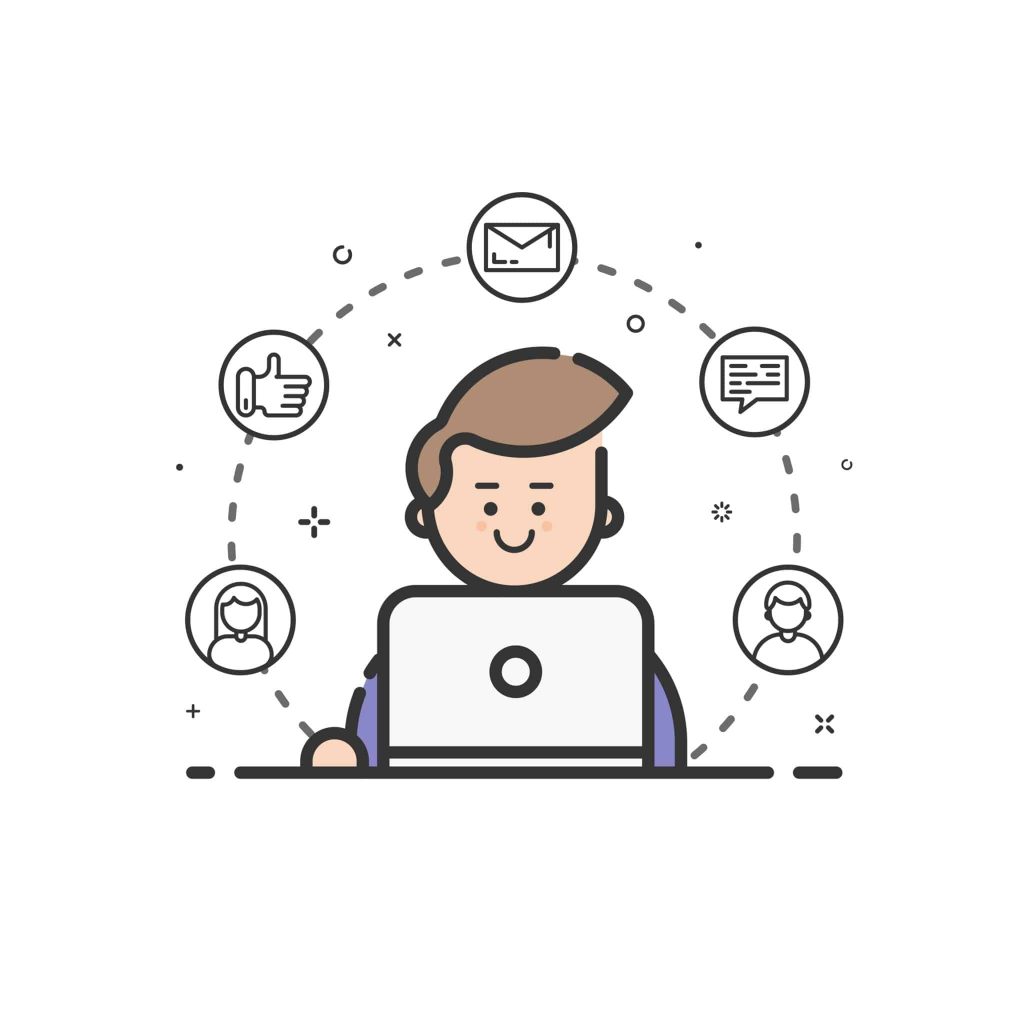Support Systems and Social Media
In the age of the internet, we don’t even need to leave our couch to build social connections that support our mental health! Social media has made it simple to create a support system of people who elevate our mental health and well-being.
Given the challenges presented by social isolation in the wake of the coronavirus, it’s more important than ever to have strong support systems — and to stay in touch with our friends, family and loved ones via virtual means of communication, such as social media.
Here’s how you can use social media to build a support system that understands and bolsters your mental health while staying safe from COVID-19 at home.
Social Media and Mental Health
Much of what you have heard about the connection between social media and mental health may be unfairly negative. In reality, social media, like any platform, can be used for both good and evil when it comes to supporting mental health.
Sometimes, social media can feel like a place where we learn to feel inadequate about ourselves. Between #FOMO and the comparison trap, we can find ourselves feeling down when we surround ourselves with the wrong kinds of people and accounts on social media.
Likewise, when we surround ourselves with positivity and use social media to create genuine connections with others, social media becomes a place that actually supports and improves mental health, rather than dragging it down!
A study at Harvard University found that the effects of social media on a person’s health depend greatly on that person’s relationship with social media. People who checked social media excessively and allowed it to influence their mood experienced negative health outcomes as a result of social media use. However, people who routinely used social media to interact with others — by commenting on their posts, etc. — experienced positive mental health outcomes from social media use.
Social media is often blamed as a scapegoat to explain rising levels of anxiety and depression in the modern era. However, another study conducted by Michigan State University suggested that social media use may actually ward off anxiety and depression in adult users, who were 63 percent less likely to experience psychological distress than non-users.
Social media allows young people to build connections with others who understand what they are going through. If you suffer from mental illness and find yourself at a school or in a community that is less than supportive, then social media affords you the opportunity to connect with others across the globe who share your condition and empathize with your story.
But, it’s also important to be aware of the negative effects of social media on mental health, too, and to take steps to ward them off. For example, idealized social media posts by health and fitness influencers may contribute to the development of poor body image and eating disorders. Alternatively, even brief exposure to body-positive Instagram posts can actually improve body image — highlighting the importance of following the right kinds of accounts on social media, and unfollowing any accounts that make you feel worse about yourself!
How to Use Social Media Positively to Build Connections with Others
So, how do you make sure you are using social media in a constructive way to build connections with others, rather than in a way that will negatively impact your mental health? Follow these dos and don’ts from Mental Health First Aid to learn how you can use social media in a way that will positively affect your health and well-being!
Do: Connect with loved ones on social media.
Social media offers us an excellent opportunity to stay in touch with friends and family who live far away. Especially during this present period of social distancing, social media allows us to connect with people we care about from the comfort and safety of our own homes. Following and engaging with people you love online fosters positive social connections that enrich our lives and improve our mental health.
Don’t: Follow content that makes you sad, angry or anxious.
Nowadays, social media allows almost everyone the opportunity to become an “influencer” in some way — and not all influencers are out there spreading love, light and positivity. Some people may share content that makes you feel bad about yourself. Whether you know them in real life or not, following this type of content transforms social media from a safe space into a place that can negatively impact your mental health. If you don’t want to hurt someone you know’s feelings, try putting them on “mute” to hide their content from your feed without unfollowing or unfriending them.
Do: Connect with people who share positive or inspiring stories.
Social media allows us to connect with people near and far whom we admire. For every influencer sharing a negative message, there are also plenty of organizations and people spreading light and positivity into the online world. Use social media as an opportunity to follow and engage with people whose stories you admire. Who knows? You might make a connection with someone whose story is similar to yours!
Don’t: Rely solely on social media for social connection.
During COVID-19, social media offers us a great opportunity to connect with others without breaking social distancing guidelines — but it’s important to stay in contact with our loved ones in ways that better mimic face-to-face conversation. Phone calls and video chat are two other constructive ways to build social support while stuck at home. Be sure to intersperse other methods of conversation with time spent on social media so you can still have a social life offline, too! And, once social distancing ends, don’t forget to make dates to spend time with your friends and family in-person, too.
Do: Follow safety guidelines when using social media.
The internet can be a positive place to make connections with others, but it can also be a scary place. Some people may not be who they say they are online, so it’s important to be careful when interacting with others on social media. Keeping your social media on “private” is a great way to exercise caution and vet those who can view what you post online. Kids especially should only follow or friend people whom they know and trust in real life. You should also make sure to limit the amount of personal information you share online. Remember, nothing truly “disappears” from the internet — so, you should always make sure that what you post online is something you would feel comfortable with an employer or college admissions counselor seeing in the future!
Don’t: Forget to have fun on and offline!
At the end of the day, it’s important to remember that social media is just for fun! There’s no need to take yourself too seriously or curate an image of perfection online, despite social pressures saying otherwise. If social media stops being fun and instead becomes draining, saddening or anxiety-inducing in any way, it may be a time to take a step back and take an extended break from your online life. Likewise, ensure that your time spent on social media does not interfere with your offline life or stop you from saying “yes” to time spent with family and friends in real life.

Conclusion
Social media has the potential to impact our mental health positively and negatively — it all depends on how you use it! Like any online tool, social media can be used for good or evil. When we follow content that makes us feel sad, anxious or angry, we may find ourselves reaping negative effects from social media.
In order to feel the benefits of social support through social media, we should limit our time spent online and the types of content we choose to interact with. It’s also important to exercise caution when interacting with others online and to use social media to connect with others in a constructive way.
We understand that the effects of social media are not always within our control. If you are being cyberbullied, stalked or otherwise harassed online, it’s important to tell a trusted adult or authority so they can take the appropriate actions to safeguard you and your mental well-being.
It’s also important to recognize when social media use stops being “just for fun” and crosses the line into a problem or full-blown .

